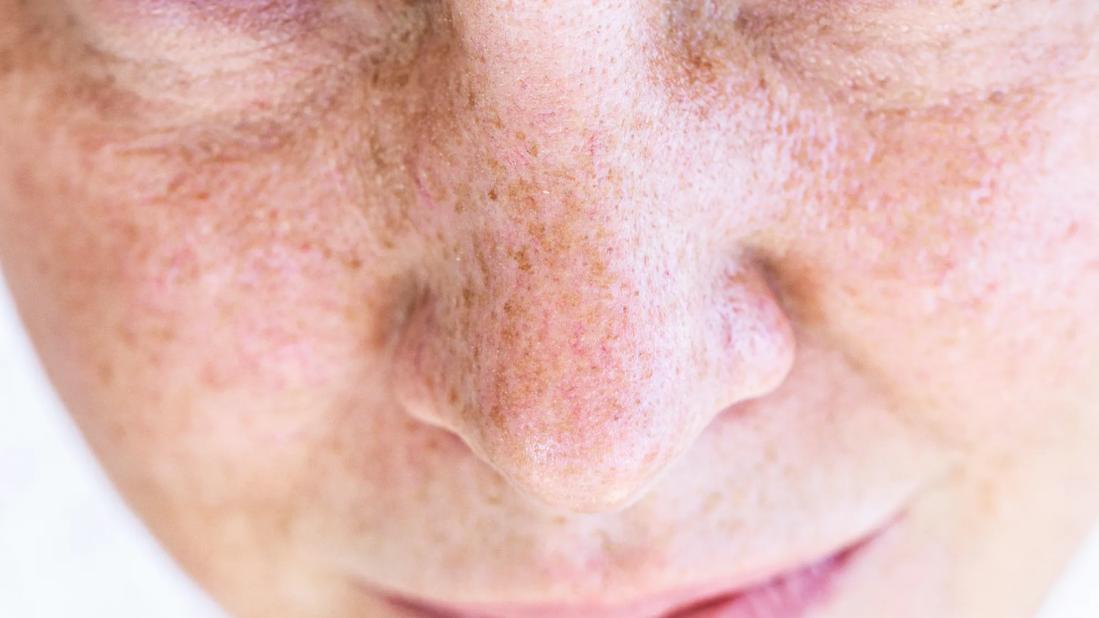Proper treatment should keep your skin tone more even

Image content: This image is available to view online.
View image online (https://assets.clevelandclinic.org/transform/e8276838-d3e5-46ec-8df1-05c9f10c273d/hyperpigmentation-face-1479459850)
Close-up of freckled face
Congenital adrenal hyperplasia (CAH) affects hormones throughout your body, which can impact everything from your stress response and your electrolyte balance to how your physical features develop.
Advertisement
Cleveland Clinic is a non-profit academic medical center. Advertising on our site helps support our mission. We do not endorse non-Cleveland Clinic products or services. Policy
It can also affect your skin. Acne is common, as are patches of uneven skin color called hyperpigmentation.
Endocrinologist Pratibha Rao, MD, shares how CAH can cause hyperpigmentation and what to do about it.
People with CAH can’t make (or don’t make enough) cortisol. That’s a hormone that, among other things, affects how your body responds to stress. When your body tries to compensate for missing cortisol, it creates a domino effect.
One thing leads to another, and other hormones are affected. Hyperpigmentation is one of those downstream changes.
Let’s take a close look at why:
Advertisement
Hyperpigmentation is usually most noticeable on:
“Your natural skin tone can affect how hyperpigmentation shows,” Dr. Rao clarifies. “It can be less obvious on people with darker skin tones and more apparent on lighter skin.”
Now, for the good news: With proper management of CAH, patches of hyperpigmentation should fade away.
Glucocorticoids are a common category of medication for CAH. They replace the cortisol that your body doesn’t create naturally. These medications help do all the things that cortisol normally does — like help your body respond to stress and recover from injury.
They can also stop the cascade of hormone overproduction that leads to discolored patches.
“Glucocorticoids help to suppress ACTH. When you do that, you also keep the body from creating extra MSH,” Dr. Rao explains. “That means you don’t end up with hyperpigmentation either.”
Common glucocorticoids include:
Hyperpigmentation should start to clear up quickly after you begin taking glucocorticoids to manage CAH. Talk with a healthcare provider about how CAH is affecting you. Treatment is available to help you live your best life.
Advertisement

Sign up for our Health Essentials emails for expert guidance on nutrition, fitness, sleep, skin care and more.
Learn more about our editorial process.
Advertisement
The effects depend on severity, but may include infertility, heart disease and life-threatening adrenal crisis
Some CAH medications can cause weight gain — keep up healthy habits and talk with your care team about options
CAH starts with a missing enzyme and leads to a domino effect of hormonal impacts
CAH runs in families — you can inherit it if both of your biological parents carry the mutated gene
Hormonal imbalances can make it harder to conceive when you’re living with CAH, but treatments are available
Fans of these trendy ‘mocktails’ claim they combat stress and fatigue, but they’re not your best choice
While it’s not medically recognized that our adrenal glands can ‘tire out,’ adrenal disorders are a very real thing
Consume caffeinated foods and drinks in moderation, if you have them at all
Although it could be used as a moisturizer, this new trend is not recommended
Communicating clear limits helps protect your time, energy and emotional well-being
High cholesterol can be genetic, but testing and treatment can lower your heart disease risk